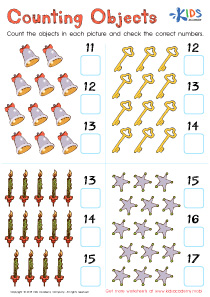Counting skills Normal Tracing Numbers Worksheets for Ages 6-7
12 filtered results
-
From - To
Enhance your child's counting skills with our engaging normal tracing numbers worksheets designed specifically for ages 6-7. These worksheets provide a fun and effective way for young learners to practice number formation while reinforcing their understanding of numbers and counting. Each worksheet features clear number outlines that children can trace, fostering fine motor skills and building confidence in their handwriting. As they progress, kids will develop a stronger foundation in math, making it easier for them to tackle more advanced concepts later on. Explore our collection today and watch your child thrive in their numerical journey!
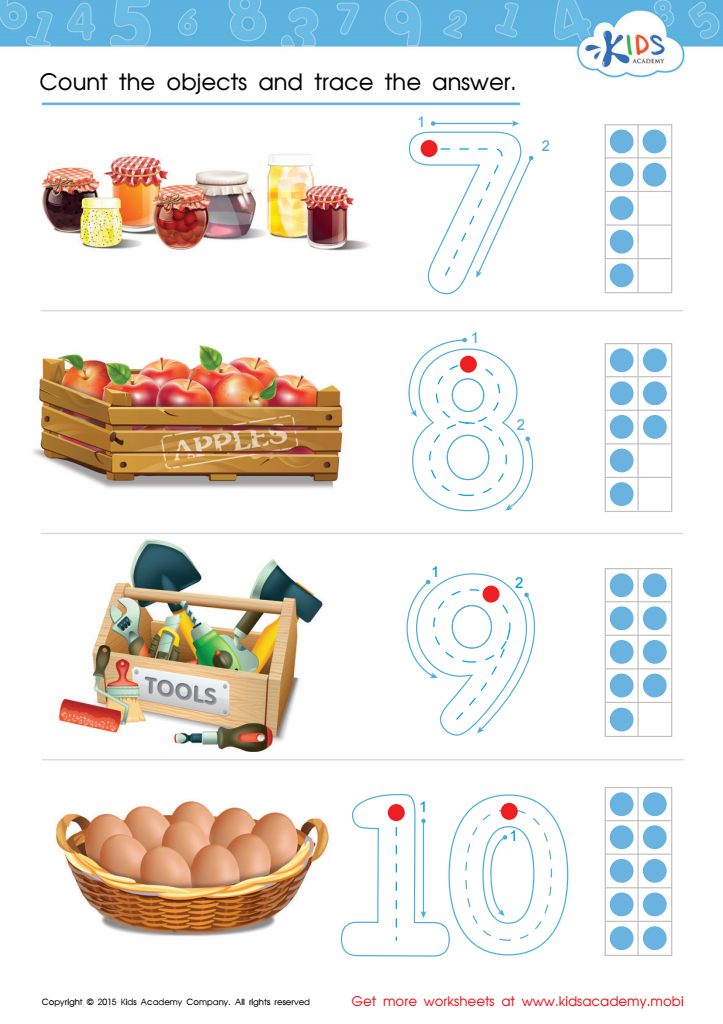

Count and Trace 7 – 10 Worksheet


Tracing And Learning to Write Number 9 Worksheet
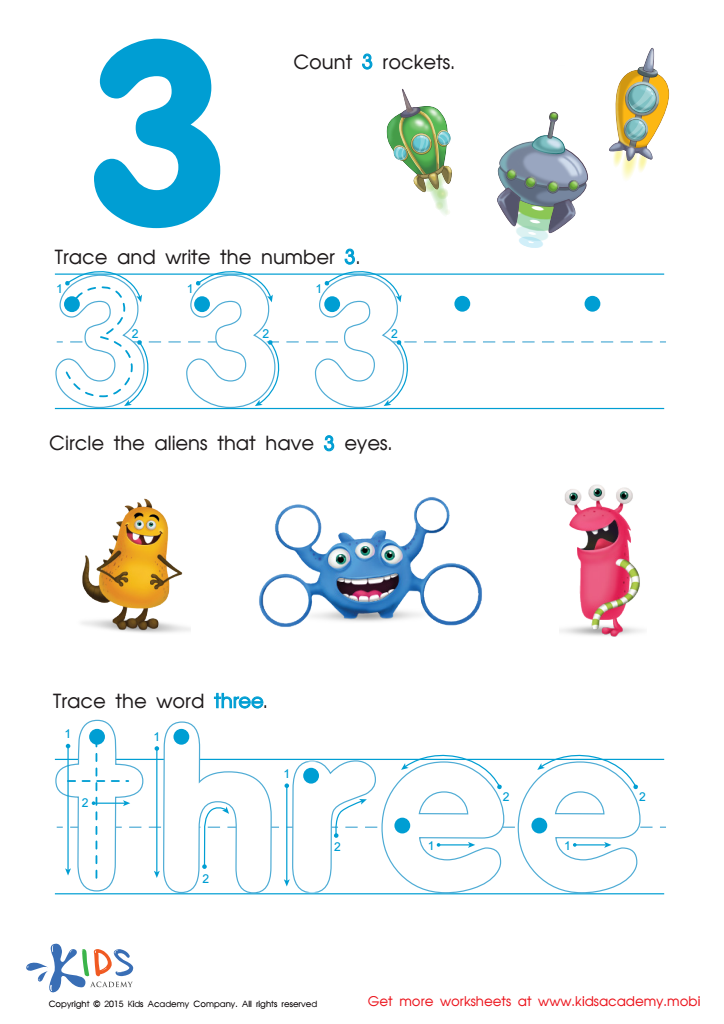

Learning Number Three Worksheet


Finding 4 in the Forest Worksheet
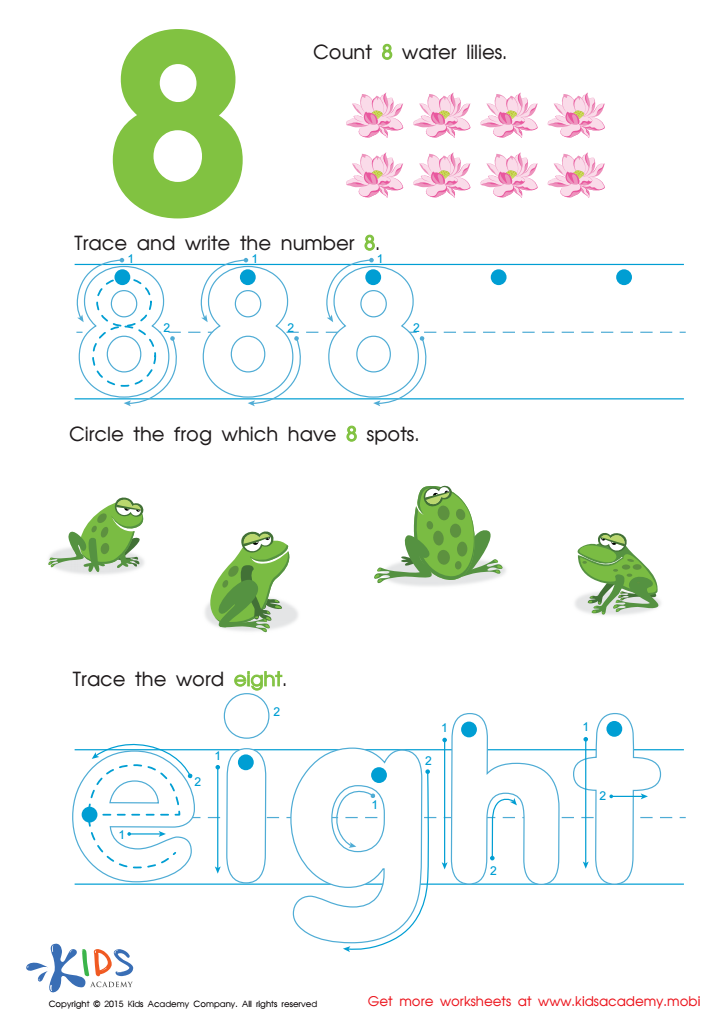

Learn Number 8 Easily Worksheet
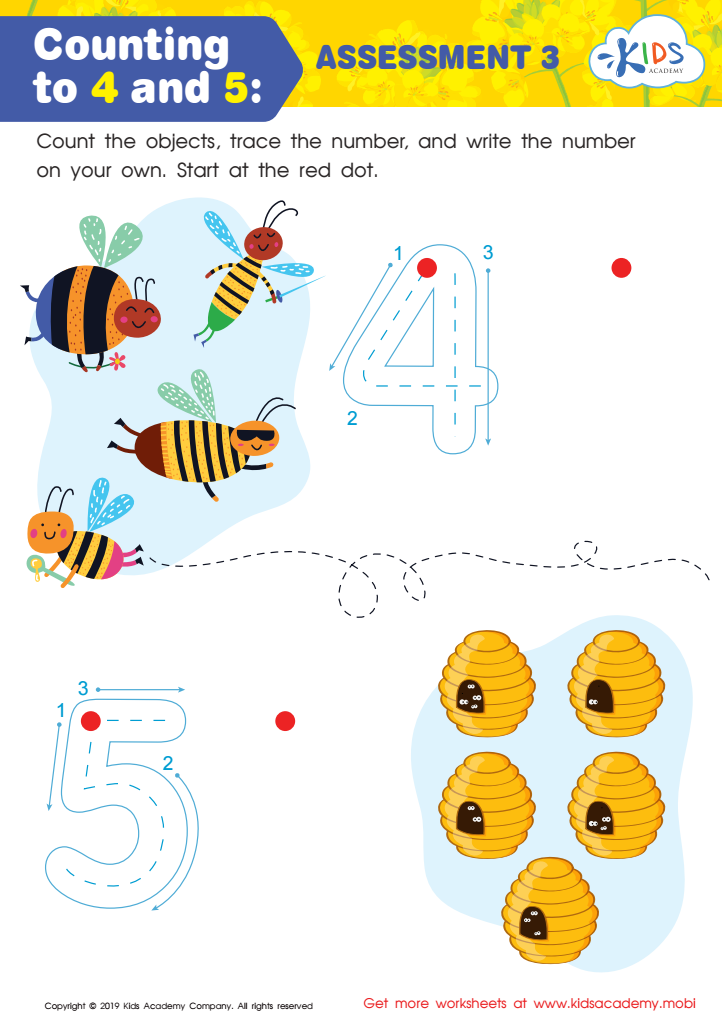

Counting to 4 and 5: Assessment 3 Worksheet
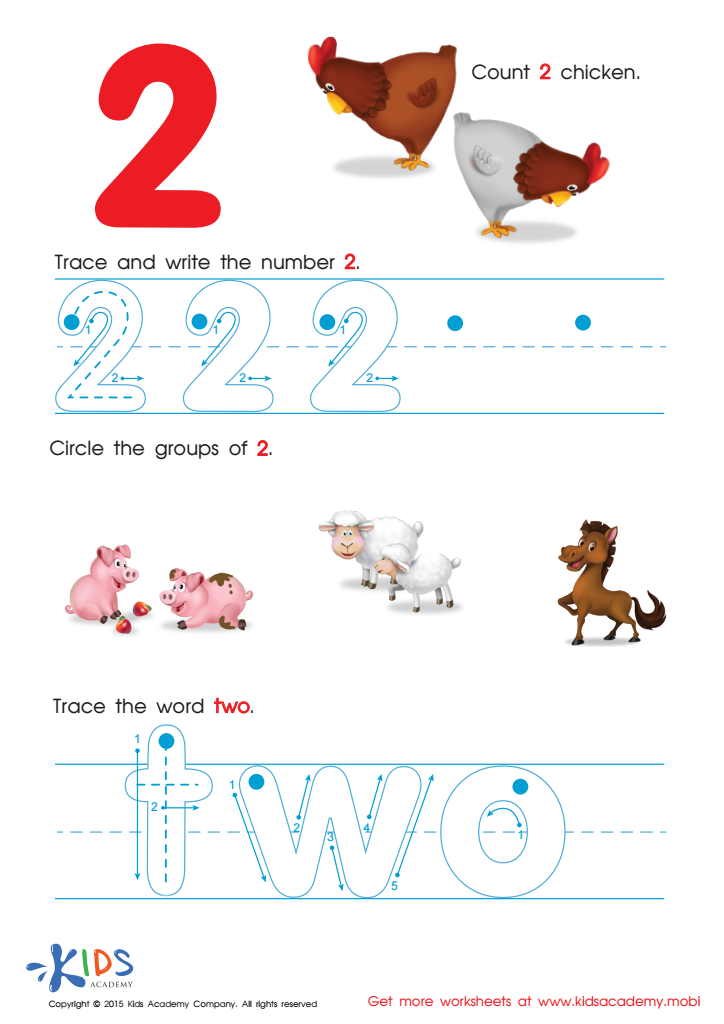

Learn to Write the Number 2 Worksheet


Trace And Write Number 0 Worksheet
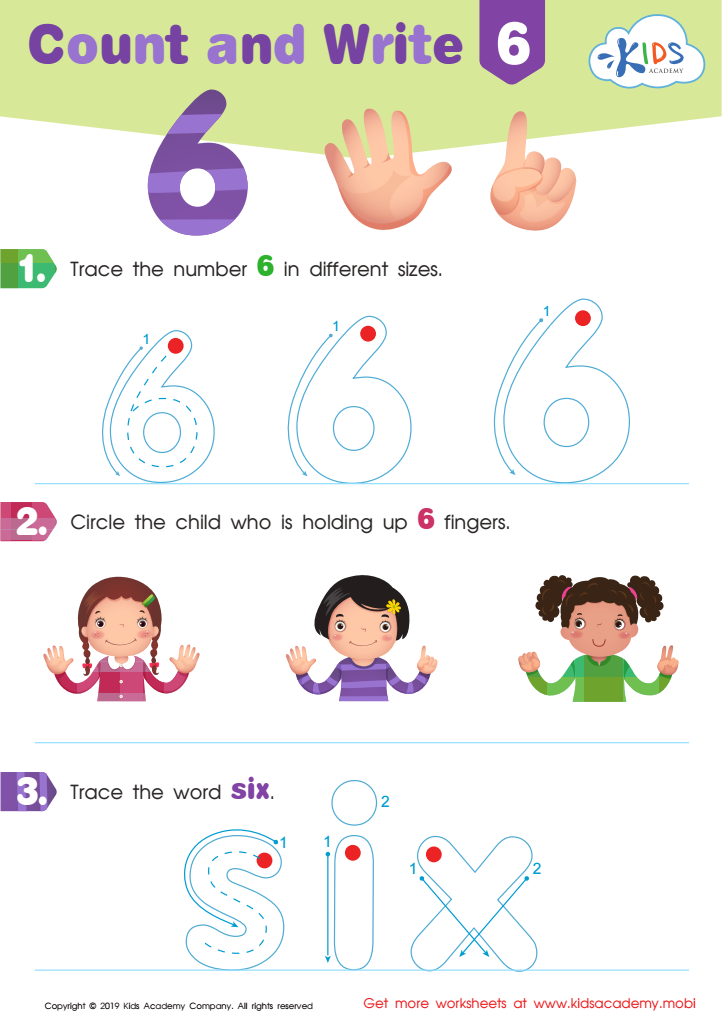

Count and Write 6 Worksheet
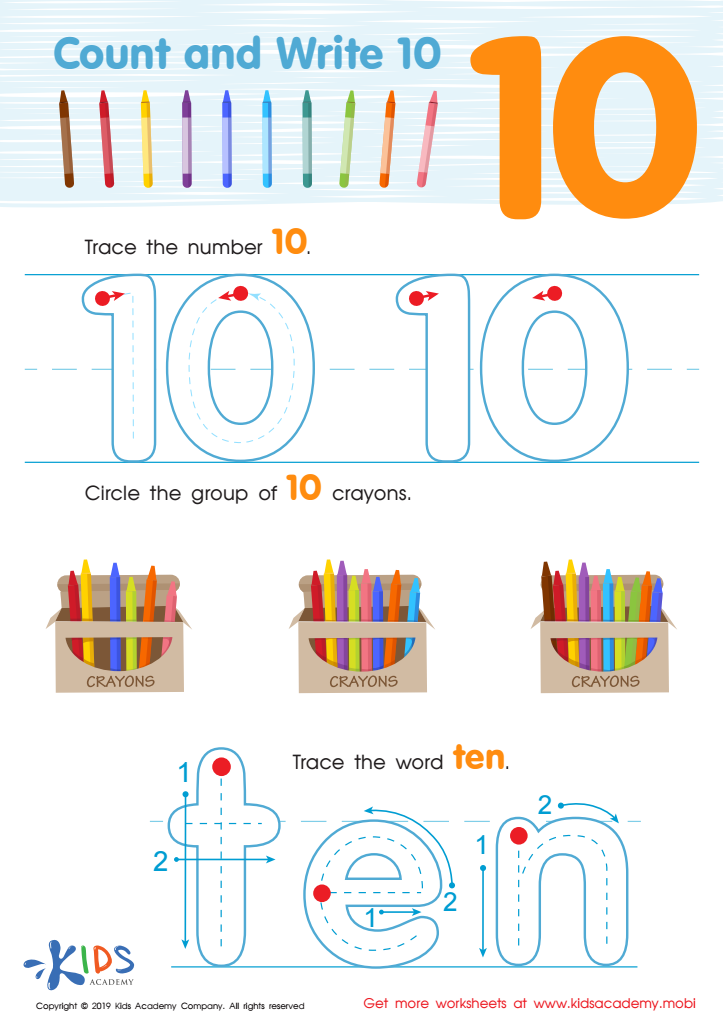

Count and Write 10 Worksheet
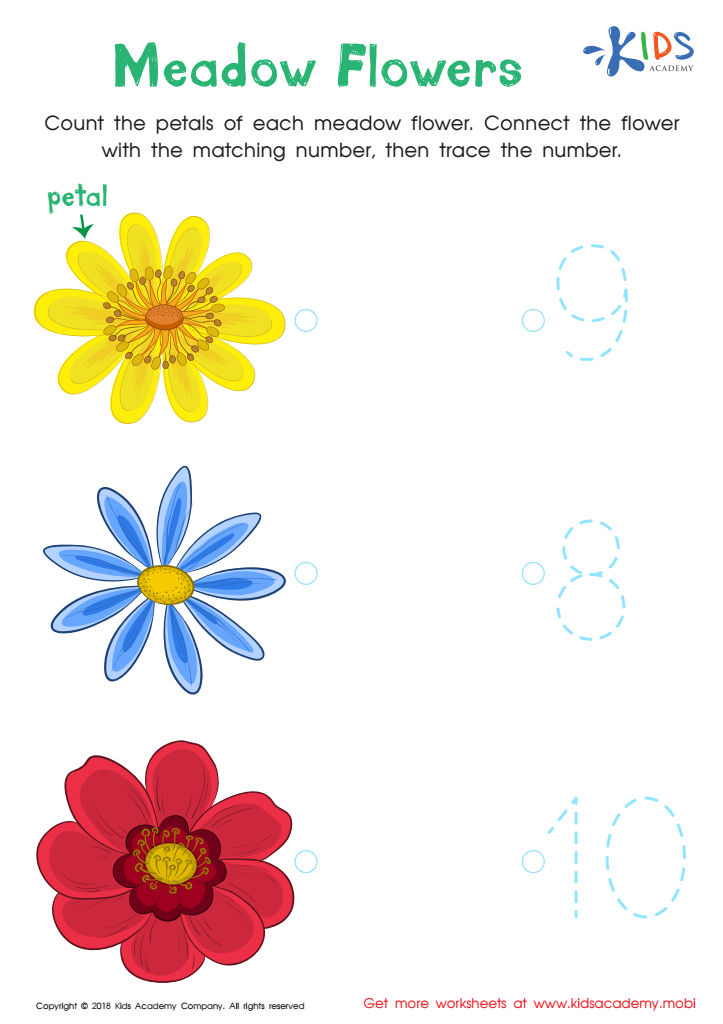

Kindergarten Number Tracing: Medow Flowers Worksheet
Counting skills and tracing numbers are foundational components of early mathematics education, particularly for children aged 6-7. As children at this age develop crucial cognitive abilities, incorporating counting and number tracing into their daily learning is essential. Parents and teachers should prioritize these activities for several reasons.
First, counting serves as the basis for understanding numerical concepts. It encourages children to grasp one-to-one correspondence and lays the groundwork for more complex operations like addition and subtraction. Tracing numbers helps children learn proper numeral formation, reinforcing their understanding of quantity and value. Both skills enhance fine motor coordination, which is vital for writing and other tasks.
Moreover, developing counting and tracing skills boosts children's confidence in their mathematical abilities, cultivating a positive attitude towards math as they progress. Engaging in these activities fosters critical thinking and problem-solving skills that extend beyond math.
Additionally, early proficiency in counting and numeral recognition can positively impact academic performance as children advance through their education. By investing time in counting and tracing, parents and teachers empower children to create a strong mathematical foundation that will serve them throughout their academic and everyday lives. Thus, nurturing these skills is crucial for their overall development and future success.
 Assign to My Students
Assign to My Students











